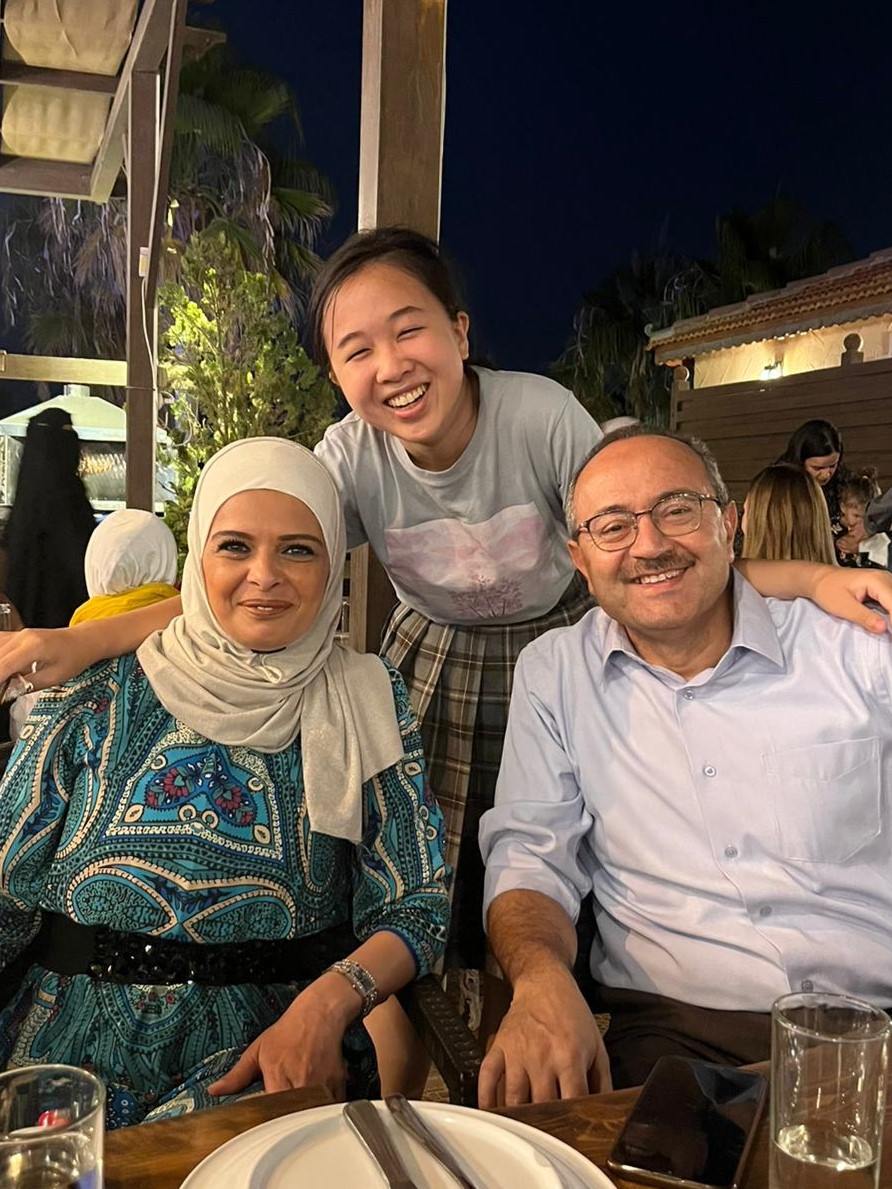NSLI-Y participants are immersed in the daily life of the host community, and all interactions are an opportunity to practice the language and learn about the culture and society.
Host Communities

NSLI-Y participants in programs abroad mainly connect with their host community through host families and language partners.
Host Families
NSLI-Y programs abroad include homestays with host families. Many alumni describe the host family stay as one of the most valuable parts of their NSLI-Y experience which strengthens language skills, cultural understanding, and knowledge of daily life in the host community.
Host families are carefully screened and selected based on their ability to provide a safe home environment and their enthusiasm for cultural exchange. Some programs place students in host families for the full program duration, while others place students with host families for a part of the program, or on weekends.
Language Partners
Language partners help NSLI-Y participants practice the target language and learn about the culture outside of regular classes. Language partners are typically high school or university students and are screened and selected through an application process by the local host institution. NSLI-Y host institutions and implementing organizations guide and monitor language partner activities.
The host family experience is the most valuable part of NSLI-Y; it gives students a second family and a way to connect with the local culture. I hope to visit my host family in the future and stay in contact with them […]
Sun, NSLI-Y Chinese Alumna
Host Communities FAQ
Host families are chosen through a careful selection process with assistance from the host institution, host community partners, and/or volunteers. Prospective host families are interviewed in their homes and must provide references. All host families receive an orientation to sensitize them to cultural differences and to prepare them for the hosting experience. Implementing organizations do their best to match host families and students based on the host family’s application materials and the placement information students provide in their NSLI-Y application. The most important criteria for selecting a host family are that the family can provide a safe environment and has a genuine interest in cultural exchange.
Host families typically do not speak much, if any, English. Students are expected to use the target language at home. The homestay experience is sometimes challenging, particularly in the beginning, but many participants say that it is one of the most rewarding parts of the NSLI-Y program.
Participants typically have breakfast and dinner with their host families and spend time together on weekends.
Each host family experience is unique. Flexibility on the part of the participant and their parent(s)/guardian(s) is critical for a successful host family experience.
Students and host families spend time together and engage in activities outside the home, but host families are not required to take the NSLI-Y participant on outings or excursions outside of the host city.
Details about the homestay experience:
- Students are provided with their own bed, but not necessarily their own bedroom in the host family home.
- The host family may have children, may consist of an adult couple, or may consist of a single adult.
- If the host family has children, they may or may not be the same sex or a similar age as the NSLI-Y participant.
- Some students may be the only NSLI-Y student placed with the host family; others may be placed with another NSLI-Y student in the same family.
- Students may need to commute independently from their host family’s home to their host school using public transportation.
- Host families may or may not have internet connection in their homes. Internet availability and speed may be unreliable.
- Implementing organizations will notify host families of any allergies or medical conditions on a need-to-know basis. Host families should not be expected to administer medication or medical treatments, or to monitor medical conditions.
- Throughout the program, NSLI-Y resident directors or local coordinators provide support to participants and host families to mitigate any challenges or concerns.
 U.S. Department of State
U.S. Department of State
